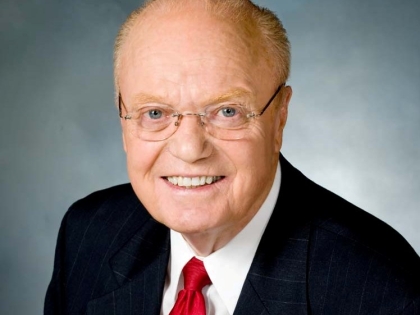
Sen. Farley Reports Senate to Act This Week on Its “Brighter Future” Budget Plan
Hugh T. Farley
March 12, 2015
-
ISSUE:
- Budget

State Senator Hugh T. Farley (R, C, I – Schenectady) said that he and his colleagues in the New York State Senate Republican Majority will act this week on its “Brighter Future” budget plan that creates a new property tax rebate program for middle-class homeowners, extends historic opportunities to students and makes significant investments in New York’s infrastructure to create good-paying jobs.
The Senate expands upon the Executive’s tax relief proposal by creating a new property tax rebate program. The rebate, when combined with the existing property tax freeze credit, will provide the average New York homeowner with a rebate check totaling $458. Along with the STAR exemption, homeowners would receive the most property tax relief in state history this year.
Under the Governor’s original plan tax plan, a majority of New York homeowners (nearly 2 million) wouldn’t receive a dollar in additional relief. In contrast, the Senate’s broader tax cut proposal would apply to all STAR eligible homeowners, or approximately 3.3 million people.
The Senate’s tax relief plan will also include a New York City personal income tax (PIT) credit and put in place in the City the two percent property tax cap already in effect across the state. If enacted, the New York City property tax cap would save taxpayers and businesses more than $500 million annually.
In addition, the Senate budget will make the statewide property tax cap permanent.
The Senate budget completely eliminates the $1 billion that remains of the Gap Elimination Adjustment (GEA) scheme imposed by Democrats in 2010, and increases state school aid over what the Governor proposed in his Executive Budget. The additional $1.9 billion school aid increase advanced by Senate Republicans is also distributed fairly and equitably to every region of the state.
The chamber’s one-house budget increases the per-pupil charter school aid by $150 over the Governor’s $75 hike, for a total per-pupil increase of $225, and accepts his recommendation to lift the charter school cap. To provide even more opportunities for school-age children, the Senate includes the Education Investment Tax Credit in its budget.
The budget also makes college more affordable for New York families by increasing community college base aid by $100 and raises the Tuition Assistance Program (TAP) ceiling to include families making up to $100,000 a year, rather than the current $80,000 income limit, benefitting an additional 15,800 students.
In addition, Senate Republicans propose doubling the tuition tax credit (from $400 to $800) which has not been increased in 15 years while college costs have steadily increased and doubling the allowable deduction (from $10,000 to $20,000). It also permits recent graduates to deduct 100 percent of the interest on their student loans for residents maintaining full compliance with the terms of their loan repayment plan.
To help create jobs and grow our economy, the Senate will advance a $200 million small business package. Among other things, the Senate’s plan would increase the business income tax exemption from 5 percent to 10 percent for all businesses and farms that file under the personal income tax, have no more than $500,000 in business income, and at least one employee. This proposal would save small businesses and farms more than $125 million annually and positively impact more than 500,000 New York businesses.
In addition, this overall proposal would expand the Executive’s small corporation rate reduction to save 42,500 businesses a total of $40 million annually.
The Senate would completely eliminate the job-killing 18-a energy tax surcharge this year instead of in two years, saving homeowners and businesses $285 million over two years.
Rather than create winners and losers by forcing seven Upstate regions to compete for a limited pool of economic dollars, the Senate’s plan will help every region of the state that needs it. The budget includes funding for critical New York State infrastructure and revitalization needs, including $1.5 billion for upstate revitalization projects, and a 1-to-1 water quality infrastructure matching program for communities to leverage $1 billion from the state’s Clean and Drinking Water Revolving Loan funds. In addition, the Senate provides funding for rural broadband.
The Senate proposes $1.5 billion for highway and bridge capital projects as part of a new five-year road and bridge capital program – doubling the Executive’s proposal.
In addition, the Senate budget calls for $700 million for regionally significant economic development projects statewide to help create jobs, $25 million for Upstate transit capital projects and $50 million for the Main Street Revitalization program to assist local governments in cleaning up blighted areas.
As a result of this year’s historically severe winter, the Senate budget also adds $50 million for the Consolidated Local Streets and Highway Program (CHIPS). In addition, the Senate advances language to allow mixed martial arts (MMA) to be permitted in New York State.
The Senate budget puts in place a multi-part “Grown in New York” agriculture plan to help meet consumers’ demands for locally-grown food, and support local farmers in their efforts to provide quality, fresh food and strengthen rural communities.
The farm plan would help farmers expand their markets by providing monies to create five local transportation cooperatives where farmers can arrange to move their products to New York City and other major populated areas and offer $250,000 in New York State Thruway Toll rebate aid to help lower the transportation cost of these goods.
In addition, the plan would continue to fund vital agriculture research, marketing and education programs, expand the young and new farmer initiatives, create a “Grown in New York” brand and provide financial incentives to encourage schools to utilize locally produced, healthy food choices.
The Senate’s budget plan makes major new investments in New York’s environment, including a substantial increase in funding for the Environmental Protection Fund (EPF). Under the Senate’s plan, the EPF will be funded with $200 million to support critical environmental initiatives, clean air and water projects and open space preservation, and a new energy efficiency category will be created. This reflects a $38 million increase over last year.
The Senate supports enhanced disclosure to ensure transparency and accountability in government, and will modify the Governor’s ethics proposals, as well as the education reform initiatives advanced as part of the Executive budget.
Passage of the Senate’s one-house budget resolution this week will ensure that the state continues to make progress toward its fifth consecutive on-time budget, further restoring the public’s faith in government.
Since Republicans regained the majority in the State Senate, lawmakers and the Governor have produced low-or no-growth budgets that spend only what taxpayers can afford, while investing in education, road and bridge repair, and other initiatives that create new good-paying jobs.
In addition, the Senate will advance a constitutional amendment capping state spending at 2 percent.
By voluntarily reducing spending, the state has erased a $10 billion deficit inherited from the previous all-Democrat, all-New York City government and created a surplus. New York is now on much stronger fiscal footing than it was just five years ago.
Share this Article or Press Release
Newsroom
Go to NewsroomHealth Update and Resource Guide
September 14, 2014

Never Forget 9/11
September 14, 2014

Senator Farley Salutes Malta Fire Department
September 14, 2014

Salute Our National Anthem on its Bicentennial
September 12, 2014
